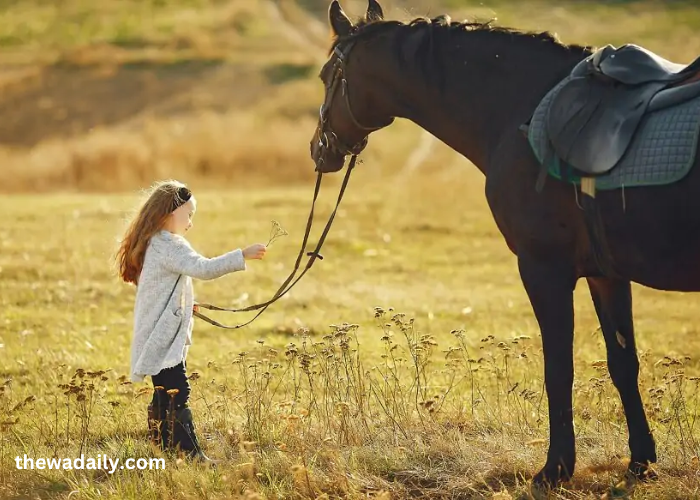Horses have been an integral part of human history for thousands of years, captivating our imagination with their beauty, strength, and grace. From ancient battlefields to modern-day equestrian sports, horses continue to play a significant role in our lives. In this article, we delve into the majestic world of horses, exploring the diverse breeds, fascinating behaviors, and essential care practices that ensure their well-being. Explore the world of horse racing with France Cheval Turf. Get the latest news, tips, and insights to enhance your betting experience.
Diverse Breeds of Horses
The world of horses is rich with variety, boasting over 300 different breeds, each with its own unique characteristics. These breeds can be broadly categorized into three main groups: light horses, heavy horses, and ponies.
Light Horses: Known for their agility and speed, light horses are often used in racing, show jumping, and dressage. Popular breeds in this category include the Arabian, Thoroughbred, and Quarter Horse. Arabians are renowned for their endurance and refined beauty, while Thoroughbreds are celebrated for their racing prowess. Quarter Horses, on the other hand, are prized for their versatility and are a staple in rodeo events and ranch work.
Heavy Horses: Also known as draft horses, these powerful breeds are built for strength and stamina. They were historically used for heavy labor, such as plowing fields and hauling goods. Notable heavy horse breeds include the Clydesdale, Shire, and Belgian. These gentle giants are still seen today in parades, logging, and even therapeutic riding programs.
Ponies: Standing at 14.2 hands (58 inches) or shorter, ponies are smaller than horses but possess great strength relative to their size. Breeds like the Shetland Pony, Welsh Pony, and Connemara are popular choices for children and small adults due to their manageable size and friendly nature. Ponies are commonly used in driving, riding, and as companions for larger horses.
Fascinating Behaviors of Horses
Horses are highly social animals with complex behaviors that are both intriguing and essential for their communication and survival. Understanding these behaviors is crucial for anyone involved in their care and training.
Herd Dynamics: In the wild, horses live in herds with a clear social structure. This hierarchy helps maintain order and reduces conflicts. Typically, a dominant mare leads the herd, making decisions about movement and foraging, while a stallion protects the group from threats. Observing these dynamics in domestic settings can help horse owners manage their animals more effectively.
Communication: Horses communicate using a combination of vocalizations, body language, and facial expressions. For instance, a horse may nicker softly to greet a friend or whinny loudly when separated from the herd. Ear position, tail movement, and the way they hold their heads can also convey a range of emotions and intentions, from curiosity and relaxation to fear and aggression.
Grooming and Bonding: Mutual grooming is a common behavior among horses that strengthens social bonds. Horses use their teeth and lips to nibble on each other’s coats, which helps remove parasites and provides a comforting touch. This behavior is not only a sign of affection but also an important part of their social interaction.
Essential Care Practices for Horses
Caring for horses requires a deep commitment to their physical and emotional well-being. Proper nutrition, regular exercise, and routine health care are fundamental aspects of responsible horse ownership.
Nutrition: Horses are grazers, designed to eat small amounts of forage throughout the day. A diet primarily composed of good-quality hay or pasture is essential for their digestive health. Supplementing with grains or concentrates may be necessary for horses with higher energy requirements, such as those in heavy work or breeding programs. Access to fresh, clean water at all times is crucial to prevent dehydration and support overall health.
Exercise and Enrichment: Regular exercise is vital for a horse’s physical and mental health. Whether through riding, groundwork, or turnout in a pasture, horses need opportunities to move and engage their minds. Incorporating variety into their routine, such as trail rides or obstacle courses, can prevent boredom and improve fitness.
Health Care: Routine veterinary care, including vaccinations, dental check-ups, and parasite control, is essential to keep horses healthy. Farrier care is equally important, as regular hoof trimming or shoeing ensures proper hoof function and prevents lameness. Observing horses daily for signs of illness or injury allows for prompt intervention and treatment.
Conclusion
The world of horses is a majestic and multifaceted one, filled with diverse breeds, fascinating behaviors, and the need for diligent care. Whether you’re an experienced equestrian or simply an admirer of these magnificent animals, understanding their complexities enhances our appreciation and ability to provide for their needs. Horses have long been our companions and partners, and with proper knowledge and care, we can ensure they continue to thrive in our lives.
